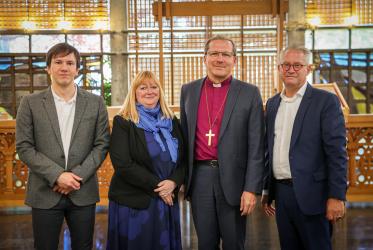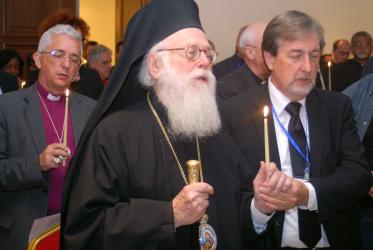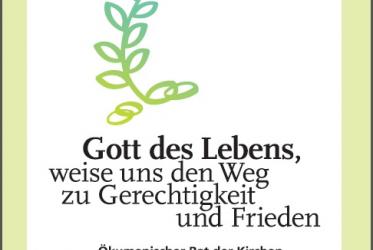Displaying 1 - 20 of 20
WCC hosts visitors from Finland, Germany, and Sweden
29 September 2023
Brazilian churches call for transformative racial justice
23 November 2020
#WCC70: A story of life
07 June 2018
G20 summit: call to pray for peace in Hamburg
07 July 2017
Religion: Way of war or path to peace?
30 June 2016
Symposium focuses on religion, violence, extremism
04 February 2016
Rebuilding a smashed church in Albania
23 December 2015
WCC urges responsibility for and support to the refugees in Europe
04 September 2015
Faith organizations assess COP 20 on the way to Paris
28 January 2015
Christians around the world pray for unity
22 January 2015
Indigenous faith leaders reflect on resilience and climate change
23 September 2014
Voices against violence at World Youth Day in Rio
29 July 2013












